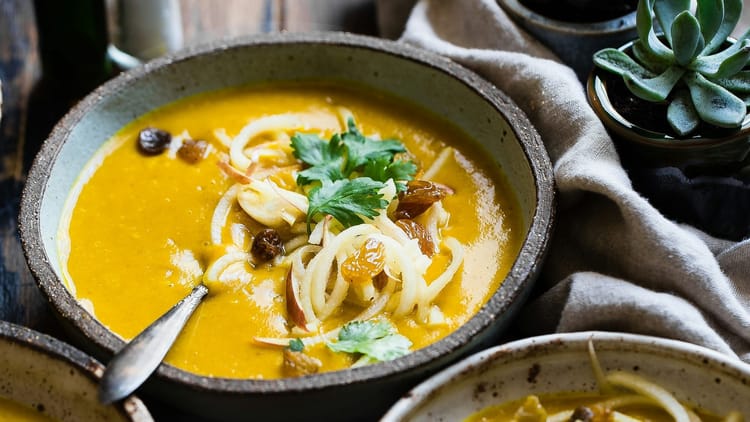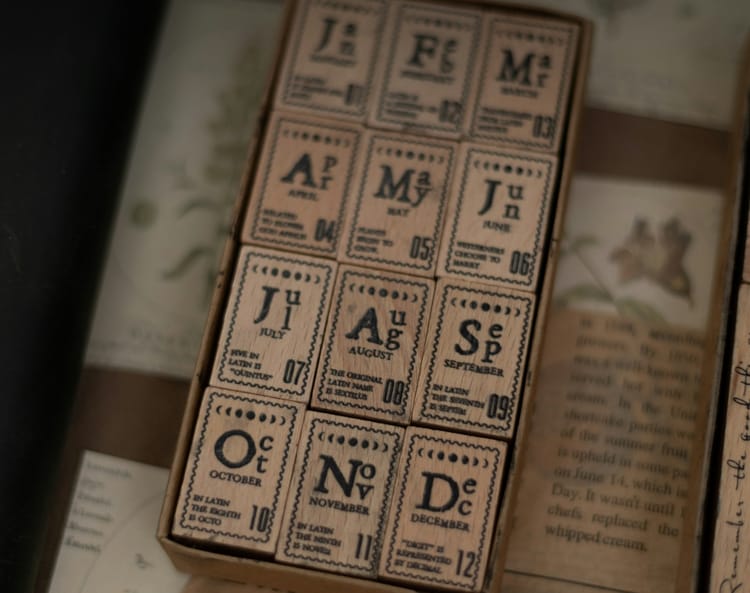Constant Companions

Subscribe to Stone Soup to get updates, recipes, and book recommendations in your inbox every week.
Who is your oldest friend?
This is one of the few questions about the past that doesn’t make my soul itch. I don’t do well with my own history. It makes me uncomfortable to consider all the selves I’ve been, and I have a hard time stitching them together into a cohesive me. How do I reckon with the child I used to be? How do I acknowledge the married, cardigan-wearing, churchgoing office worker I was for a time, without also acknowledging that I abandoned much of that person in order to become who I am now?
My friend SW makes it easier to look back across the selves I have inhabited. She does this just by virtue of having been my friend for so long. She’s known me at my messiest and my tidiest, my weakest and my sturdiest, my most courageous and most cowardly. When I think of the past fifteen years of my life in a vacuum, it’s a frightening expanse of near-constant transformation. But when I remember that SW has been there for all of it—that she has known all the various pupal stages of my growth, and has still always been able to identify me as me—it feels more possible to navigate looking back.
When my loved ones are going through moments of hopeless struggle—when they’re grieving or hurting or frightened, and the only thing that can help is the passage of time—I tell them what my friendship with SW has taught me over the years. You don’t have to do this alone. Because sometimes, that’s all we can offer each other: The promise of companionship, even in our suffering. The promise of just one constant. The promise that no matter how much our pain transforms us, something will remain anchored to the immovable self that exists somewhere within our souls.
I tell my loved ones this because many of us never get to hear it. We find other things to anchor ourselves to: characters from beloved media franchises, pets, alcohol. Recipes. We attach the fundamental substance of ourselves to things that won’t abandon us and we say this will stay the same, and through that connection, we manage not to lose ourselves.
Sometimes we wind up having to find ways to disconnect from those attachments later on, when our hour of darkness has passed and we find that the things we once clung to have become drowning-weights around our ankles. Other times, the things we attach ourselves to leave us, and we have to find new ways to keep from spinning out into the abyss.
But occasionally, if we are very fortunate, we anchor ourselves to things that can change with us. SW has been many people over the time that I’ve known her. I think of her as a constant—and yet when I look back over the years I can see a dozen different SWs, layered together like panes of glass, profoundly different and yet all easily recognizable as this person I have loved, and still love, and will always love with all my silly heart.
Food carries us through our lives in much the same way. The word companion finds its origins in the Latin word for bread—panis, which has nourished us from the roots of civilization, just as we nourish each other from the roots of our relationships. Companion started out as a word describing a person with whom one breaks bread, shares a meal, and thus spends time in comfort and certainty. We even make companions of our meals when we need to. A recipe created in a time of hardship becomes a favorite comfort for our children. What we consider a dinner-table staple in one season of life might become a luxuriant indulgence in a later, harder period. We share cherished recipes with new friends; we use them to welcome new family members into our traditions.
We open up our lives through food, just as we slowly introduce new friends to old ones—saying here is someone who has known me before, just as I hope you will know me after.
This month’s Supper Club recipes carry new and old stories with them. They are for people who have been and people who will be and people who are in the middle of great transformations. Maybe you’ll find, as you read them, that they’re saying something you need to hear:
You don’t have to do this alone.
–gailey
Coming Up This Month
- Brandon’s Jelly Doughnut Muffins
Brandon Crilly—an Ottawa teacher by day and an author, podcaster, and conference organizer by night—shares a recipe for Jelly Doughnut Muffins. His essay on recovering from abuse while learning to master a recipe will be in your inbox on October 11th. - Ayida’s Aloo Posto
Ayida Shonibar (she/they), an Indian-Bengali immigrant to Europe currently working in North America, is an author of speculative fiction published across several phenomenal outlets. Their recipe for Aloo Posto, a fried potato dish with white poppyseed paste, will be in your inbox on October 18th.
If you’re a paying subscriber, come by the Stone Soup Supper Club for early access to this month’s recipes, our weekly chat, and more community! I can’t wait to find out how you’re doing.
If you’d like to own the Personal Canons Cookbook ebook, which collects all these essays and recipes in easy-to-reference, clickable format—plus loads of bonus recipes from me!—join the Stone Soup Supper Club. The ebook is free for subscribers, who will get the download link in their inboxes in the first Supper Club email of 2024!
—Gailey





Member discussion